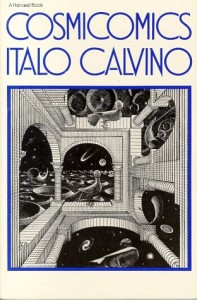 I’m so excited to finally be reviewing World War Z: An Oral History of the Zombie War by Max Brooks. On Saturday, I watched the piling masses of zombies and Brad Pitt in the preview for the film (on the front of Twilight) and rushed home to steal the book from my husband and start reading. The rest of the weekend was me avoiding everyone (including the aforementioned husband) so I could read, read, read.
I’m so excited to finally be reviewing World War Z: An Oral History of the Zombie War by Max Brooks. On Saturday, I watched the piling masses of zombies and Brad Pitt in the preview for the film (on the front of Twilight) and rushed home to steal the book from my husband and start reading. The rest of the weekend was me avoiding everyone (including the aforementioned husband) so I could read, read, read.
But a bout of food poisoning led to some really nasty zombie/vampire fever dreams that resulted in an equally nasty cold. And I’ve been unable to write ever since. So you could say that zombies ate my brains. But I’m back and I want to tell you about this book.
Reportage
World War Z is my first foray into the zombie lit genre. Most of my horror novel experience was in my early teens when Satanists and creepy toys were the horror darlings of the day. So I didn’t really know what to expect, but I imagine that Brooks’ decision to tell the story of the zombie war as a collection of field reports surprised many readers.
Reading the introduction, the way Brooks chose to tell these stories struck me as odd, but as a Poli Sci wonk, I found it easy to get into the idea of post-incident reports and was interested in the conceit of stories “too intimate” to include in the official record. Some of the individual stories are the victim stories you might expect. Others provide insight into the bureaucracy and military and civilian corps in exciting and interesting ways. So my concerns rapidly vanished and I got sucked into the book.
Creating Unique Characters
One of the challenges of telling a story from a variety of viewpoints (especially when they are all first person) is making them sound different to the reader. Brooks did a great job of subtly differentiating the voices of his characters through specific vocabulary. For example, military folks called zombies, “Zack.” It’s an effect that could have easily been overdone, but Brooks blended just the right amount of character-specific words with clean prose and it worked.
Stories from Around the Globe
Part of the reason the book felt so immediate, even though it was told from after the war, was that the reports came from around the world. The stories unfold chronologically which should provide order, but because you could be reading about Virginia on one page, Finland the next, and Antarctica a few pages later, the zombie outbreak felt like it was closing in and there was no escape. The stories wove together to form a fascinating picture of the pandemic.
World War Z: The Film
I’m all out of Twilight movies (okay, I still haven’t seen 2 or 4, but I got the gist and I’m over it), but after reading World War Z, I can’t wait to see this movie in theaters. It looks like the story might revolve specifically around Pitt’s family and I can understand why screenwriters Damon Lindelof and Matthew Michael Carnahan might choose a more traditional narrative (getting a star enough lines is only one reason). Still, I think I’ll miss the surprising storytelling of Max Brooks.
If this review made you want to read the book, pick up a copy of World War Z: An Oral History of the Zombie War from Bookshop.org. Your purchase keeps indie booksellers in business and I receive a commission.
 As I was reading Cosmicomics by Italo Calvino this weekend, I felt like the story “The Distance of the Moon” was somehow familiar. I had seen it—with my eyes, not in my imagination. But it wasn’t quite the same story. It took a few hours for me to remember that I was thinking of Pixar’s La Luna, the short film at the front of Brave.
As I was reading Cosmicomics by Italo Calvino this weekend, I felt like the story “The Distance of the Moon” was somehow familiar. I had seen it—with my eyes, not in my imagination. But it wasn’t quite the same story. It took a few hours for me to remember that I was thinking of Pixar’s La Luna, the short film at the front of Brave. Some writers have the power to immerse the reader in a world so forcefully that your emotions are surrendered to them and your wellbeing is completely at their mercy. That is the experience I was hoping for Love by Péter Nádas.
Some writers have the power to immerse the reader in a world so forcefully that your emotions are surrendered to them and your wellbeing is completely at their mercy. That is the experience I was hoping for Love by Péter Nádas.